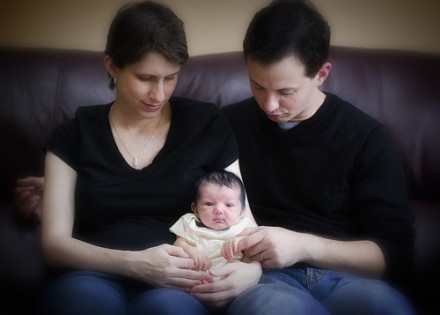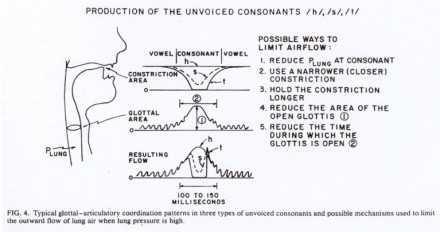Yo Kass answered
Babies learn to say "dada" before "mama" simply because it's easier to say.
The "d' sound (or phoneme) requires less oral motor skills to produce, than the comparatively complex "m" sound.
 Why dada is number 1
When my daughter first started saying "dada" before "mama", I took it s a triumphant sign that she loved me more than her mom.
Why dada is number 1
When my daughter first started saying "dada" before "mama", I took it s a triumphant sign that she loved me more than her mom.
However, linguistics has a slightly more scientific reason for why dada came first:
When babies first start babbling, they'll begin with the easiest sound to make - open vowels (the kind you're asked to make at the dentist).
 Which sounds to babies make first?
If you think of speech as airflow traveling across the vocal chords, through the mouth, and passed the lips - it would make sense that the sounds that require the least obstruction would be the easiest to say.
Which sounds to babies make first?
If you think of speech as airflow traveling across the vocal chords, through the mouth, and passed the lips - it would make sense that the sounds that require the least obstruction would be the easiest to say.
Open vowels require no tongue movement, and the lips remain in a fairly neutral position.
They're always a baby's first sound. Once babies have grown bored of vowels, they start experimenting with other sounds.
In fact, babies try out nearly 150 phonemes (units of sound), before settling on the ones used in their native language at around 11-12 months (English only uses 40 phonemes).
That's why one of my daughter's first sounds was the voiceless uvualar fricative [x]. It's the kind of sound someone would make if they were clearing their throat of phlegm, but doesn't feature in the English language.
This last fact is also interesting, because it discredits the theory of mimicry - the idea that babies simply repeat what they hear (unless my daughter had been watching Arabic news channels again).
In fact, once babies move on from vowels and other simple sounds, they almost always jump into the world of "plosives" - sounds that involve the restriction of airflow, followed by a sudden release.
[d] is a voiced plosive phoneme, and is therefore acquired by most babies well before they learn to make a [m] sound (which is more complex, requires lip compression, and consists of nasalization and occlusion).
So next time someone tells you "I can't believe he/she hasn't said mama yet!", you can just tell them that baby hasn't got round to "voiced nasal bilabials" yet.

The "d' sound (or phoneme) requires less oral motor skills to produce, than the comparatively complex "m" sound.
 Why dada is number 1
When my daughter first started saying "dada" before "mama", I took it s a triumphant sign that she loved me more than her mom.
Why dada is number 1
When my daughter first started saying "dada" before "mama", I took it s a triumphant sign that she loved me more than her mom.However, linguistics has a slightly more scientific reason for why dada came first:
When babies first start babbling, they'll begin with the easiest sound to make - open vowels (the kind you're asked to make at the dentist).
 Which sounds to babies make first?
If you think of speech as airflow traveling across the vocal chords, through the mouth, and passed the lips - it would make sense that the sounds that require the least obstruction would be the easiest to say.
Which sounds to babies make first?
If you think of speech as airflow traveling across the vocal chords, through the mouth, and passed the lips - it would make sense that the sounds that require the least obstruction would be the easiest to say.Open vowels require no tongue movement, and the lips remain in a fairly neutral position.
They're always a baby's first sound. Once babies have grown bored of vowels, they start experimenting with other sounds.
In fact, babies try out nearly 150 phonemes (units of sound), before settling on the ones used in their native language at around 11-12 months (English only uses 40 phonemes).
That's why one of my daughter's first sounds was the voiceless uvualar fricative [x]. It's the kind of sound someone would make if they were clearing their throat of phlegm, but doesn't feature in the English language.
This last fact is also interesting, because it discredits the theory of mimicry - the idea that babies simply repeat what they hear (unless my daughter had been watching Arabic news channels again).
In fact, once babies move on from vowels and other simple sounds, they almost always jump into the world of "plosives" - sounds that involve the restriction of airflow, followed by a sudden release.
[d] is a voiced plosive phoneme, and is therefore acquired by most babies well before they learn to make a [m] sound (which is more complex, requires lip compression, and consists of nasalization and occlusion).
So next time someone tells you "I can't believe he/she hasn't said mama yet!", you can just tell them that baby hasn't got round to "voiced nasal bilabials" yet.
